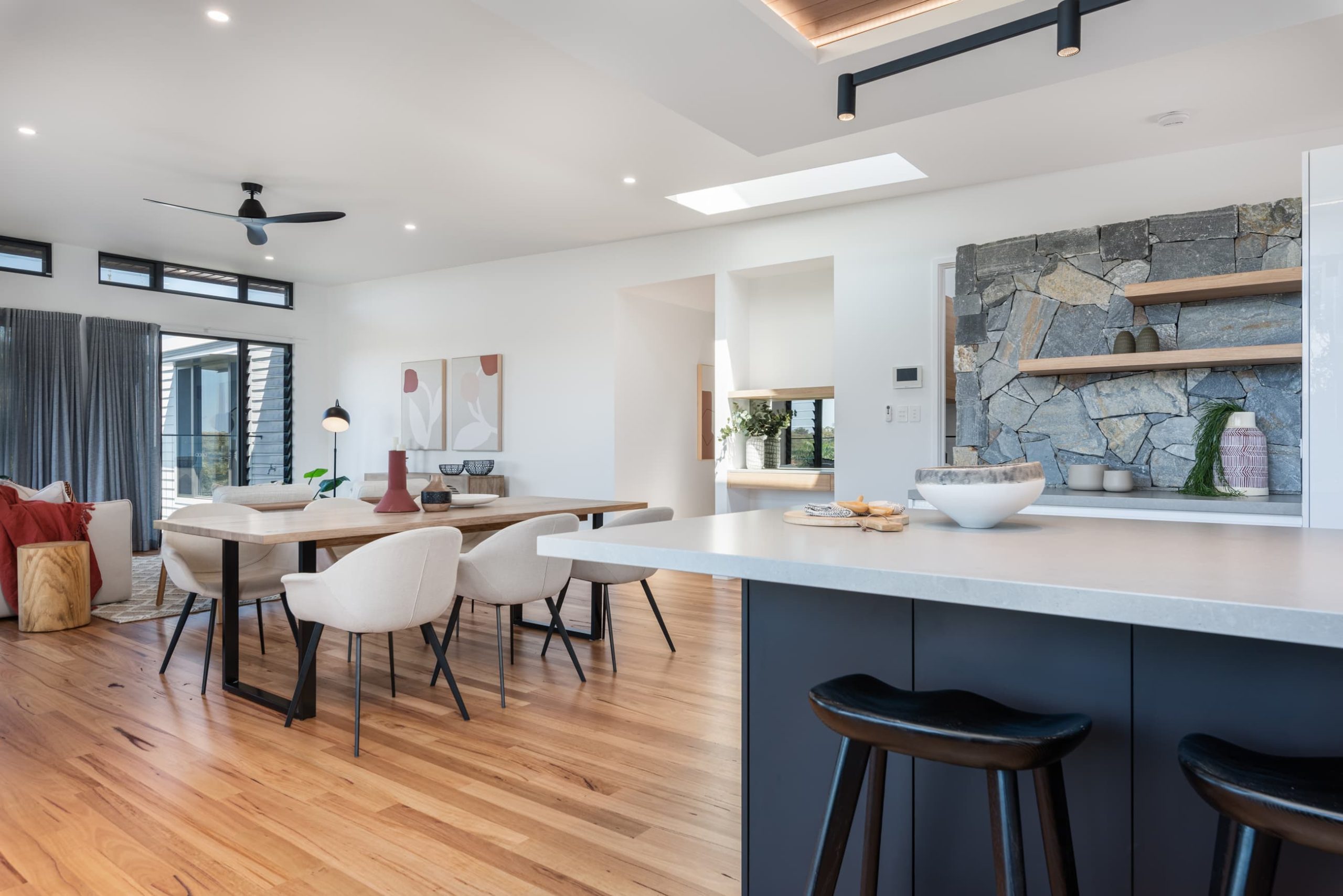HomeBuilder provides eligible owner-occupiers (including first home buyers) with a grant of $25,000 to build a new home or substantially renovate an existing home. HomeBuilder will assist the residential construction market by encouraging the commencement of new home builds and renovations this year.
This below information is provided by the Australian Government. To download a copy of the Fact Sheet click here.
WHAT IS HOMEBUILDER?
HomeBuilder is a time-limited, tax-free grant program to help the residential construction market to get through the Coronavirus pandemic. HomeBuilder will provide eligible owner-occupiers (including first home buyers) with a grant of $25,000 to build a new home or substantially renovate an existing home.
WHEN CAN I ACCESS HOMEBUILDER?
HomeBuilder will be available for building contracts signed between 4 June 2020 and 31 December 2020, where construction or renovation commences within three months of the contract date.
HOW CAN I ACCESS HOMEBUILDER?
You should contact your relevant State or Territory authority on when and how to apply for HomeBuilder. You will be able to apply for HomeBuilder when the Government of the State or Territory that you live in, or plan to live in, signs the National Partnership Agreement with the Commonwealth Government.
WHEN WILL I RECEIVE HOMEBUILDER?
HomeBuilder grants will be paid by the relevant State or Territory authority provided the applicant meets the eligibility criteria.
AM I ELIGIBLE TO RECEIVE HOMEBUILDER?
To access HomeBuilder, owner-occupiers must meet the following eligibility criteria:
• you are a natural person (not a company or trust);
• you are aged 18 years or older;
• you are an Australian citizen;
• you meet one of the following two income caps:
– $125,000 per annum for an individual applicant based on your 2018-19 tax return or later; or
– $200,000 per annum for a couple based on both 2018-19 tax returns or later;
• you enter into a building contract between 4 June 2020 and 31 December 2020 to either:
– build a new home as a principal place of residence, where the property value (house and land) does not exceed $750,000; or
– substantially renovate your existing home as a principal place of residence, where the renovation contract is between $150,000 and $750,000, and where the value of your existing property (house and land) does not exceed $1.5 million;
• construction must commence within three months of the contract date.
Owner-builders and those seeking to build a new home which will be used as an investment property, or renovate an existing home which is an investment property, will not be eligible for HomeBuilder. The registered or licensed builder (depending on the state or territory) must demonstrate that the contract price for the new build or substantial renovation is no more than a comparable product (measured by quality, location and size) as at 1 July 2019, if requested by the purchaser.
IS THERE A LIMIT TO HOW MANY PEOPLE CAN GET HOMEBUILDER?
No. HomeBuilder is an uncapped, time-limited grant.
I ALREADY OWN LAND BUT HAVEN’T SIGNED A CONTRACT TO BUILD A NEW HOUSE – AM I STILL ELIGIBLE?
Yes, if you meet the following criteria:
• If you own a property (house and land), and knock the house down to rebuild – this will be counted as a substantial renovation, and therefore subject to the renovation price range of $150,000 to $750,000 provided the total value (house and land) of the property does not exceed $1.5 million pre-renovation;
• If you own vacant land before 4 June 2020, and then build, the total value of the land and new build cannot exceed $750,000; or
• If you buy the land after announcement, and then build, the total value of the land and build cannot exceed $750,000.
WHAT TYPES OF DWELLINGS ARE ELIGIBLE UNDER HOMEBUILDER?
All dwelling types (house, apartment, house and land package, off-the-plan, etc) are eligible under HomeBuilder, in accordance with the requirement that the owner-occupier must contract to build a new dwelling or substantially renovate their existing dwelling. The applicant must also meet the eligibility requirements outlined above.
WHAT ARE THE PRICE CAPS ASSOCIATED WITH HOMEBUILDER?
HomeBuilder is subject to two prices: a contract price cap (for new builds and renovations) and an income cap for applicants.
Contract price cap
A national price cap of $750,000 will apply for new home builds. This means that the value of new builds (house and land), house and land packages, and off-the-plan purchases must not exceed $750,000 to be eligible for HomeBuilder. For renovations, a building contract price range of between $150,000 and $750,000 will apply and the total value of your property before renovation must not exceed $1.5 million.
Income price cap
Eligible applicants must meet one of the following two income caps:
• $125,000 per annum for an individual applicant based on the 2018-19 tax return or later; or
• $200,000 per annum for a couple based on their combined 2018-19 tax return or later.
The income price cap, as well as the eligibility criteria for the applicant, were chosen to reduce complexity as they align with the Commonwealth Government’s First Home Loan Deposit Scheme.
IS A HOMEBUILDER GRANT TAXED?
No – a HomeBuilder grant will not be taxed. This is consistent with existing state and territory First Home Owner Grant programs.
WHAT RENOVATIONS WILL BE ELIGIBLE?
To be eligible for HomeBuilder, the value of renovations must be within the price range of $150,000 and $750,000, the total value of your existing house and land must not exceed $1.5 million, and construction must commence within three months of the contract date. Renovations must improve the accessibility, liveability and safety of the property. This excludes building a tennis court, pool or shed for the renovation contract for eligibility purposes. Renovations must be completed by a licenced or registered builder (depending on the state or territory). In addition, any building or renovation contract entered into must be at arm’s length. This means the contract must be made by two parties freely and independently of each other. The terms of the contract should be commercially reasonable and the contract price should not be inflated compared to the fair market place.
I AM NOT A FIRST HOME BUYER – CAN I ACCESS HOMEBUILDER?
Yes. Provided you meet the eligibility criteria, you can apply for a HomeBuilder grant. However, HomeBuilder is not available for investment properties or to owner-builders.
HOW DO I APPLY?
You will be able to apply for HomeBuilder through your relevant State or Territory revenue office or equivalent authority, once the State or Territory Government that you live in (or plan to live in) signs the National Partnership Agreement. States and Territories will backdate acceptance of HomeBuilder applications to 4 June 2020 once the National Partnership Agreement is signed. You should contact your relevant State or Territory revenue office for more information about when and how you will be able to apply for HomeBuilder.
WHAT DOCUMENTATION WILL I NEED TO PROVIDE?
The State or Territory revenue office will require certain documents to process your application. It is expected that you will need to provide the following at a minimum:
• proof of identity;
• a copy of the contract, dated and signed by you and the nominated registered or licenced builder;
• a copy of the builder’s registration or licence (depending on the state you live in);
• a copy of your 2018-19 tax return (or later) to demonstrate your eligibility against the income cap and;
• documents such as council approvals, building contracts or occupation certificates and evidence of land value.
More information on the documentation you will need to provide will become available through the relevant State or Territory authority.
WHEN WILL I KNOW IF MY HOMEBUILDER APPLICATION IS SUCCESSFUL?
The relevant state or territory administering agent will notify you of the outcome.
WHAT HAPPENS IF MY HOMEBUILDER APPLICATION IS NOT SUCCESSFUL? CAN I APPEAL? WHO SHOULD I APPEAL TO?
If you are dissatisfied with the outcome of your HomeBuilder application, you can request that the matter is referred to the relevant state or territory dispute resolution body. More information on the appeals process will become available in due course.
WHAT HAPPENS IF THERE IS A CHANGE IN CIRCUMSTANCE AND I’M NO LONGER ELIGIBLE?
If your circumstances change after you have applied for HomeBuilder but have not yet received the payment, and no longer meet the eligibility criteria, you will need to notify your State or Territory revenue office immediately.
WHO PAYS HOMEBUILDER AND WHO RECEIVES IT?
The relevant State or Territory revenue office will distribute the $25,000 grant directly to the applicant.
HOW WILL THE GOVERNMENT IMPLEMENT HOMEBUILDER?
HomeBuilder is expected to be implemented via a National Partnership Agreement, signed by the Commonwealth and State and Territory Governments. This approach will draw on existing State and Territory mechanisms to distribute the HomeBuilder payments.
WHAT INTEGRITY MEASURES IS THE GOVERNMENT IMPLEMENTING?
HomeBuilder is subject to strict eligibility criteria, price caps and income caps to manage demand and support residential construction activity. Owner-builders and those seeking to build a new home or renovate an investment property are ineligible for HomeBuilder.
The registered or licensed builder (depending on the State or Territory) must demonstrate that the contract price for the new build or substantial renovation is no more than a comparable product (measured by quality, location and size) as at 1 July 2019, if requested by the purchaser. The renovation works must be to improve the accessibility, safety and liveability of the dwelling. It cannot be for additions to the property such as swimming pools, tennis courts, outdoor spas and saunas, sheds or garages (unconnected to the property).
In addition, any building contract entered into must be at arm’s length. This means the contract must be made by two parties independently of each other and without some special relationship, such as being a relative. The terms of the contract should be commercially reasonable and the contract price should not be inflated compared to the fair market price.

